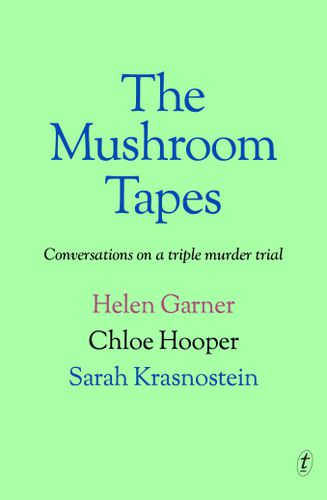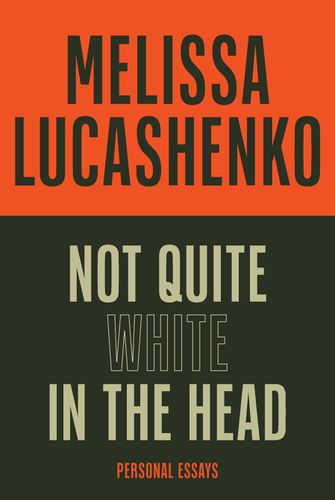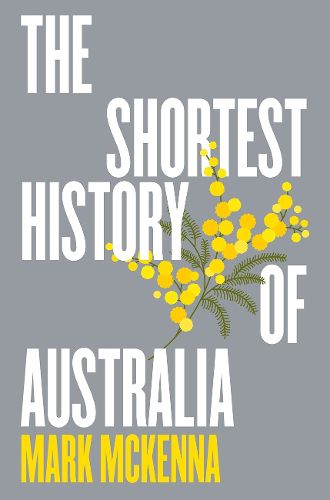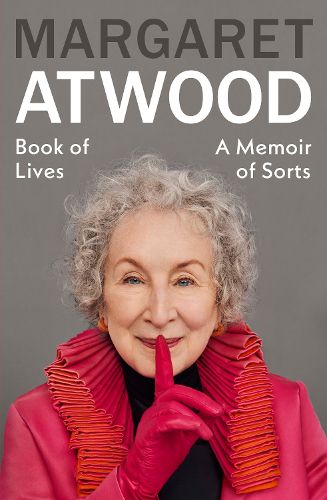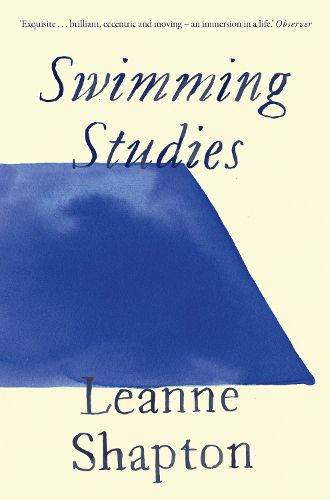Discover the new nonfiction books our booksellers are recommending this month!
Australian Studies
The Mushroom Tapes: Conversations on a Triple Murder Trial
Helen Garner, Chloe Hooper & Sarah Krasnostein
Clear your diaries, because The Mushroom Tapes is categorically a must-read, diary-clearing kind of book: the hotly anticipated literary engagement with the infamous and internationally compelling Erin Patterson triple murder trial that we’ve all been waiting for, and undoubtedly the nonfiction book of the season. Written by three of the best writers in the business – Helen Garner, Chloe Hooper, Sarah Krasnostein – who joined forces and interests to follow the trial together, and create something they could not have done alone, this book is, as we who know these writers’ works individually have hoped, greater than the sum of its parts, their collaboration supercharging their insights, concerns, expertise.
But enough of the hype, and first, a confession: I’m not a true crime kind of gal. I have listened to no podcasts (of any kind), and was only moderately interested in the ‘mushroom trial’ (as it has come to be known), as part of the background news feed that is part of one’s daily life: I was not trawling the internet for clues of my own, hypothesising, or otherwise obsessed with this case, as interesting and unusual as it is. If you are one of these types, you’ll know much of the factual material that the book conveys, but, like the authors, you might not have been quite sure what to do with all the pieces of this very public puzzle, and were looking for a way through the evidence that builds up and leads, inevitably, to Patterson’s guilty verdict, seeking the answer to the pressing question, ‘why?’. Here, Team Mushroom shows you a way. But for those of us without this depth of detail, there is enough here to get us up to speed (and to leave us suitably aghast), and learn about the distinct personalities both inside and outside the courtroom and the terrain of its Gippsland location, but then the focus becomes the words of our guides, each unique, honest, and unmistakable in their personalities. They cover all the questions of ethics and purpose we might all wish were answered about this crime and all true crime writing. There is nothing gawkish or gratuitous about this book (or, as Garner fears at one point, they’re not ‘perving’). Its register is inquisitive, reflexive, curious, cautious, a cultural inquisition with psychological heft, always mindful of the lives affected and lost following the terrible event of that infamous beef wellington lunch, and interrogative of the collective interest in the gloom.
I couldn’t stop reading this book, told as it is in a series of transcripts of two- and three-way conversations, sometimes in the car or over the phone or over lunch during breaks in the court proceedings, which had been destined for a podcast of its own that didn’t eventuate, but instead we – lucky readers, all – can gulp down, right to its final beautiful paragraph, after which I audibly sighed, ‘wow’.
Reviewed by Alison Huber.
Not Quite White in the Head: Personal Essays
Melissa Lucashenko
Just recently, another book which will sit in our ‘Australian Studies’ section was published, and it came with the subheading ‘How an ancient land became a great democracy.’ When the author of that book was elected Prime Minister of said ancient land, in his first year he repealed the carbon price, abolished the renewable energy target, and approved expansion of a coal terminal next to the Great Barrier Reef. So, forgive me if I don’t quite trust him on the ‘great democracy’ front either. However, in Melissa Lucashenko’s words from her new book: ‘It’s time Reader, for a very deep breath: Aborigines invented democracy.’
This is the first time Lucashenko’s nonfiction work – which contains essays like ‘The First Australian Democracy’ – has been brought together in one accessible volume. We are treated to essays about her own writing, a love letter to her literary hero, speeches that have thankfully been preserved, and poignant interviews.
While the works were produced across time and place, they can be read comprehensively together (always a worry with essay collections). There is something for everyone; you needn’t have read her fiction, although learning about the motives behind her famous titles will make you want to. As Lucashenko says, ‘you don’t need to be Indigenous to engage with First Nations mobs … you simply need to be a decent, mindful human who cares about your neighbours and the earth.’ In the essay ‘On Keri Hulme’, Lucashenko says she first discovered her hero’s work at age 22, ‘a very good age to read a powerful and angry novel.’
No matter your age, now is a very good time to read this powerful collection of essays, which contains, yes, anger – but also hope, honesty and bloody good journalism. Sometimes, nonfiction can be daunting, but Lucashenko’s experience in fiction means she writes compelling stories regardless of the genre. She gives voice to numerous people, mostly Indigenous and mostly women, who can tell us the real story of ‘Australia’ and how its great democracy is playing out.
Reviewed by Grace Gooda.
The Shortest History of Australia
Mark McKenna
E.H. Carr’s highly influential 1961 lecture series-turned-monograph What is History? submitted a relativist’s answer to its titular question: that history, in the form we commonly understand it, is an endless dialogue between historians and the facts of the past. This isn’t to say that there’s such a thing as a singular ‘true’ set of events behind any given version of history; instead, the process through which history is made is a complex game of telephone stretching back to the very first fireside stories.
Black Inc.’s popular Shortest History series takes this millennia-long collect call and condenses it into snappy chunks without sacrificing the nuance of a lengthier tome. From India to Scandinavia, music to AI, the Shortest Histories have sparked curiosity on a diverse range of countries and topics. Now, after 13 years of publication, the series is homeward-bound with Mark McKenna’s The Shortest History of Australia.
Divided by theme rather than recounted chronologically, McKenna’s approach to writing the past, present and future of Australia is deeply considered and precisely crafted. Where a weaker version of this book would shunt Indigenous voices and histories into a single self-conscious chapter, McKenna demonstrates that the violence of colonialism and the endurance of the world’s longest continuous cultures are foundational to our modern national narrative. Undoubtedly there are people, places and events McKenna compresses or skips entirely; the beauty of a Shortest History book, however, is its ability to encourage its readers to embark on their own research journey. With academic rigour and storytelling flair, McKenna’s accessible volume braids infamous and little-known threads of the continent’s vast historical landscape into an intricately detailed unfinished tapestry – and leaves just enough for us to tug on and unravel for ourselves.
Reviewed by Gene Pinter.
Biography
Book of Lives: A Memoir of Sorts
Margaret Atwood
Margaret Atwood has lived a huge life, full of nature, travel, love, challenge, birds and writing. Much of her fiction and poetry has been semi-autobiographical, but it is a privilege to be given such an intimate and direct insight into her life in the form of this memoir. Book of Lives is exactly that: the telling of her life, beginning before her birth and taking us through its many chapters. I have wanted to know this kind of detail since I first ‘discovered’ Atwood and this memoir has met the brief. My curiosity has been rewarded with these 620 pages, opening a door to see into the life that shaped this exceptional writer.
Atwood began writing at a time when Canadian writers and publishing were under-acknowledged and under-supported and where opportunities were scarce. Thankfully, she and others saw this as an opportunity to fill the space. Book of Lives not only tells the story of Atwood’s personal life, but also of her life as a writer at such a pivotal time.
At first resistant to writing a memoir, the suggestion lingered in the background for a long time. As time passed and Atwood grew older, she saw the opportunity to reflect on and examine the many images of herself that have been presented to the world. There is a freedom that comes from writing a memoir after 85 years of life. Atwood has had so many experiences in her lifetime, obviously not all good, but she is both honest and respectful in recounting these.
As a reader and a bookseller, it is a great joy to know that others will also be welcomed into her life. This was always going to be a somewhat biased review, given my admiration for the author, but I genuinely feel that even casual readers of Atwood, or appreciators of a well-written, entertaining and witty memoir, will find this hard to put down.
Reviewed by Megan Wood.
Cultural Studies
Swimming Studies
Leanne Shapton
I somehow missed this poignant, lyrical memoir, first published in 2012, but I am grateful to have discovered it now. This new edition is just as fresh as if it were written yesterday, and includes a wonderful foreword by Rita Bullwinkel.
Yes, it is a book about swimming, so those of us who have spent thousands of hours clocking up laps will be familiar with the language and practices of swim training (‘Let’s go on the top’) but it is a book that has something for everyone. The first three words drew me in – ‘Water is elemental’ – but to call it a swimming memoir is to do an injustice to what is a series of reflections and vignettes on life that will speak to all readers about the entanglements of family relationships, the idea of specialness, the value or otherwise of stoicism, and the challenges of redefining yourself when you leave behind what you are good at.
Leanne Shapton recalls aspects of her early years as a competitive swimmer, how its routines and regimes defined her life, punctuated by rigour, deprivation, obedience to rules and dedication to winning. In her adult life, she realises, with some shock, that for others, life is actually something to enjoy.
She observes the changes in herself as she moves from competitive swimmer to recreational swimmer. Yet she doesn’t leave the precision and exactitude of swim training behind altogether: in one chapter, trying to capture the taste of a cake she ate in London, she painstakingly tries to re-create it. The end result is ‘Close, but off’, a result that reflects her view on her own swimming career, managing to make the Olympic trials for Canada but never quite getting close enough to make it to the Olympics themselves.
And then there is her taking up of art, where to excel, like swimming, requires repetition, practice, rigour. Her paintings of swimmers and pools are included, plus a section on her swimsuits, which are the mileposts of her life, like the vintage cotton blue and white suit, first worn in the pool where her husband proposed.
Her acute skills in observation translate magically to the page, whether describing the women in the 14-degree water of the ladies’ pond at Hampstead Heath or the silent night swims in Switzerland.
Swimming Studies is also about bodies and the physical form. It is about colours and shapes – of bodies, pools, oceans, swimsuits and skies. She describes the Barbados sky as ‘optical glucose’: well, her wonderful book is my literary glucose. This is a sugar hit to indulge in.
Reviewed by Pauline Hopkins.
One Aladdin Two Lamps
Jeanette Winterson
Jeanette Winterson’s latest book is an essay of sorts: a wonderful dissertation about empathy and the call of imagination. She argues that love is not the great link in our lives, but rather the ability to imagine is our greatest strength. To illustrate her point, Winterson introduces us to Shahrazad, the storyteller in One Thousand and One Nights. And the essay turns. This is a story of a woman fighting for her life, but it is more than a feminist fable. This is the story of how we read, why we read and what we can take from reading, but again, it is more than a book about storytelling. This is the story of happenstance and hope. It is a story about where to find the truth.
Winterson searches in other people’s stories. Here, she has taken the well-known tales from One Thousand and One Nights and turned them into modern reflections. For example, the story of Aladdin becomes a question of illusion – or is it a story of greed and ego? Who, or what, is to be trusted? Is this snake oil or is it medicine? What is counterfeit? What is authentic? I don’t know of better questions for our own time.
I love everything Jeanette Winterson writes. I love the way she pulls stories apart, looks at them from different angles, from various reference points (the Bible, Shakespeare, Rowling, Collins and so many more), reflects on her own life (her own mother, the local library, the schoolyard), and then puts it all together again to ask us: who are you when you read? Her logic is this: when we see ourselves in fiction, we can change our own story. And if we can change our own story, imagine what we can do for others.
This book is the year’s most compelling and important read.
Reviewed by Chris Gordon.


